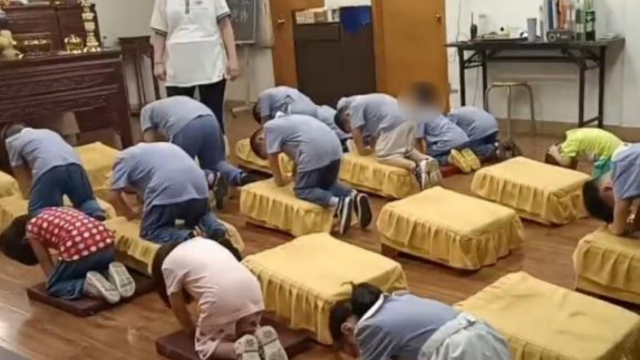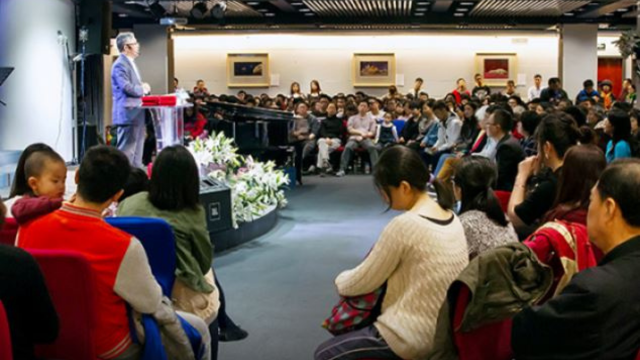by Marco Respinti

The Uyghur Human Rights Policy Act of 2020 (formerly known as Uyghur Human Rights Policy Act of 2019) is a landmark piece of legislation, upholding the rights Muslim Uyghurs and other Turkic minorities. They are harshly persecuted by the CCP because of their ethnicity and religious faith in the Xinjiang Uyghur Autonomous Region (XUAR), which Uyghurs prefer to call East Turkestan. From June 17, 2020, when President Donald J. Trump signed it, it is a law of the United States.
The bill was originally introduced in the US Senate by Sen. Marco Rubio (R-FL), one of the strongest advocates of religious freedom in XUAR, and a staunch critic of the CCP. He chaired the US Congressional-Executive Commission on China since 2015, and co-chairs it since 2019. Passed unanimously by the Senate on September 11, 2019, Sen. Rubio’s bill was further reinvigorated in a version introduced in the US House of Representatives, which passed on December 3 with the single contrary vote by Rep. Thomas Massie (R-KY). The amended stronger version was then introduced by Sen. Rubio in the Senate, which approved it on May 14, 2020 again unanimously, to be finally approved by the House on May 27, again with only Rep. Massie voting against it.
When President Tump signed it into law, the hope and requests of many, chiefly among them prominent Uyghur leader Mr. Nury Turkel, recently appointed as a member of the U.S. Commission on International Religious Freedom, were fulfilled. The World Uyghur Congress (WUC) based in Munich, Germany, one of the largest organizations in the Uyghur diaspora, expressed its full satisfaction, as did the Uyghur Human Rights Project and Campaign for Uyghurs.
The law calls on the Secretary of State and other authorities to employ targeted sanctions on those who are responsible for violating religious freedom, torturing and inflicting other cruelties on Turkic citizens in the XUAR under the “Global Magnitsky Act.” It also contains measures to contrast forced labor, and a provision which specifically condemns the plague of the so-called transformation through education camps. As the WUC commented, it makes “the United States policy towards the People’s Republic of China to be explicitly linked to the situation in East Turkistan,” putting “human rights and the Uyghur crisis at the forefront of the US’s engagement with the Chinese government.”
“Ethnic religion” and racism
The Uyghur Human Rights Policy Act of 2020 is broad in its scope and precise in its intention, as its very title reveals: “An act to condemn gross human rights violations of ethnic Turkic Muslims in Xinjiang, and calling for an end to arbitrary detention, torture, and harassment of these communities inside and outside China.”
It in fact defends not only Uyghurs, which are the majority of the inhabitants of XUAR, but also all other Turkic citizens in the region. The law affirms and at the same time underlines the key “regional” question.
The premise is that religion is always an essential part of a people’s culture, contributing to its identification as a distinctive human group. This does not mean that religion is merely an ethnic element, but the other way round. Ethnicity is the differentiation of humankind into different groups. Physical differences among human groups exists, but they are accidental elements of the one biological and spiritual human nature, to which all persons and ethnicities belong. Culture helps to properly shape our understanding of an ethnic group. In fact, culture, and religion at its core, are the key elements to identify an “ethnic” group.
The CCP persecutes Uyghurs and other Turkic minorities, as it perceives them as (mostly) Muslim groups, but non-Muslims and non-believers are also targeted by the persecution. From the point of view of an atheistic party such as the CCP, “Muslim” is only a cultural and ethnic label. In the Balkans, “Muslims” is sometimes used in the same incorrect way as a synonym for “Bosnians.”
The CCP persecutes Turkic populations in XUAR because both of their ethnicity and their religion, which the Party does not really distinguish. This is, in fact, blatant racism. The condemnation of “human rights violations of ethnic Turkic Muslims in Xinjiang” by the Uyghur Human Rights Policy Act of 2020 is then not a generic statement, but implies a sharp understanding of the core problem. The CCP’s attitude is camouflaged racism. In this time of high sensibility on the subject, this should cause the outraged indignation of governments, international institutions, civil societies, NGOs, and the public opinion in the streets of the world.
Like the Nazis
At the same time, by condemning “human rights violations of ethnic Turkic Muslims in Xinjiang”, the Uyghur Human Rights Policy Act of 2020 also debunks and rebukes the CCP’s claim that the unlawful detention and incarceration of 3 million Uyghurs plus thousands of other Turkic citizens (according to the most updated independent research) in at least 1,200 camps in XUAR (according to British director Robin Barnwell’s documentary China Undercover) are aimed at preserving social stability against ‘rioters, separatists, and terrorists.” In fact, the CCP acts as if all inhabitants of the XUAR, with the possible exception of the CCP’s own members, are “rioters, separatists and terrorists.” But how is this possible, including children, women, and the elderly? The answer is that it isn’t. Branding a whole population as “terrorist” is a way of de-humanizing it. The same rhetoric was used by the Nazis in the 1930s and 1940s to lead Jews to physical extinction. Of course, not all Germans were responsible for the Nazi atrocities, just as the U.S. act carefully distinguishes between the Chinese people in general and the CCP leaders who are responsible for the repression in Xinjiang.
We applaud the new law, but also observe that the problems of human rights and religious liberty in China are not limited to Xinjiang or the Uyghurs. Similar legislation should target the oppression of other religious and ethnic minorities by the CCP.
Source: Bitter Winter












